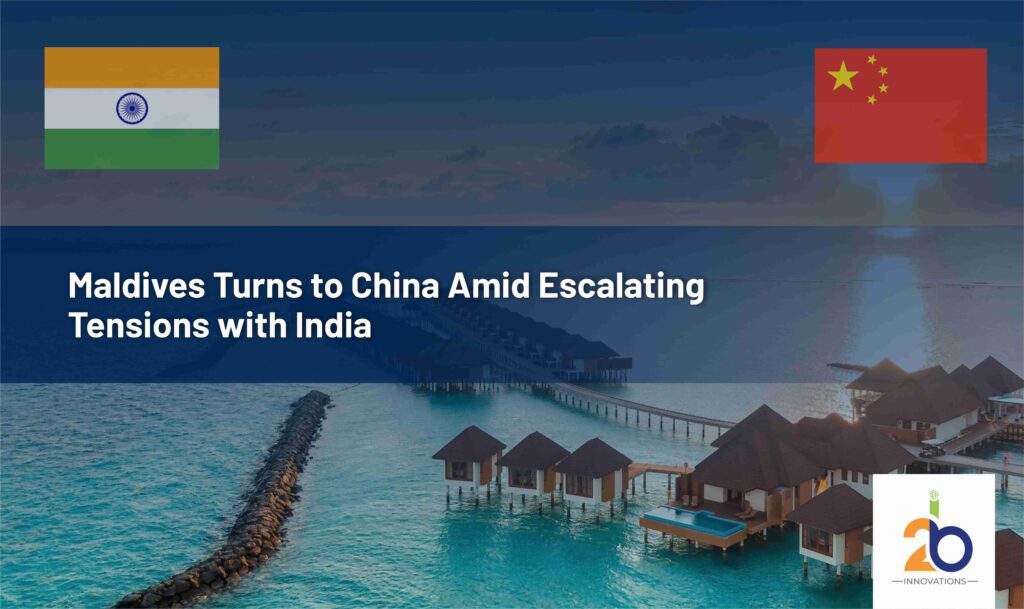
On January 4th, a diplomatic dispute erupted between India and the Maldives when social media posts from Indian Prime Minister Narendra Modi, praising the scenic beauty of India’s beaches in Lakshadweep, drew criticism from three Maldivian junior ministers. The swift response from Maldivian officials led to calls from Indian social media users urging a boycott of the Maldives as a tourist destination, revealing underlying tensions.
Despite appearing as a minor social media rift, this incident sheds light on the strained relationship between India and the Maldives following the election of the new Maldivian president, Mohamed Muizzu. President Muizzu has openly advocated for the withdrawal of Indian troops from the Maldives and the pursuit of a more independent foreign policy, which includes fostering stronger ties with China.
USIP Visiting Expert Nilanthi Samaranayake delves into the implications of this recent dispute, exploring what it might signify regarding the evolving dynamics between India and the Maldives since Muizzu’s election. Additionally, the expert examines the Maldives’ relationships with both China and the United States, providing insights into the geopolitical landscape of the region.
What are the Potential Economic and Diplomatic Consequences of the Current Tensions Between Maldives and India?
The current tensions between Maldives and India are likely to have economic and diplomatic repercussions. The economic impact could be substantial if Indian tourists opt to avoid Maldives in response to the critical comments made by Maldivian ministers. In 2023, India stood as the primary source of tourists for Maldives, and any decline in Indian visitors could significantly affect Maldives’ tourism-dependent economy. The ministers’ remarks, deemed inappropriate and unwise, particularly considering Maldives’ reliance on tourism and the imperative to bolster foreign exchange reserves for debt servicing, add an economic dimension to the strained relations.
However, India might also face adverse consequences as many flights from India to Maldives are operated by Indian-owned airlines. This situation could pose challenges for the aviation sector and have wider implications for bilateral economic ties.
On the diplomatic front, the impact will hinge on the responses of officials from both nations. It remains crucial for policymakers on both sides to exhibit leadership by promptly addressing and resolving the dispute. Preventing the issue from derailing bilateral relations during the five-year term of President Mohamed Muizzu is in the best interest of both countries. The diplomatic efforts to defuse tensions will play a pivotal role in shaping the trajectory of the relationship between Maldives and India in the coming years.
Is India Ready to Adapt Its Neighborhood First Policy in Response to Shifting Dynamics with Maldives?
The recent incident reflects an unintentional misstep by Maldives at a delicate juncture in bilateral relations. The extent to which India has adhered to the objectives of its Neighborhood First policy under the new administration remains unclear.
In contrast to the previous president’s emphasis on prioritizing “India first” in Maldives’ foreign policy, the electorate has chosen a leader from a different party with a vision to diversify foreign policy options and assert greater independence in security operations. Despite this, President Muizzu has expressed his intention to maintain a close relationship with India, even as his administration concludes Maldives’ aerial security cooperation program with India, challenging the nation’s defense forces to enhance their operational capabilities, including hydrography.
This departure from Maldives’ defense policy over the past 15 years signifies a notable shift. While often perceived as a zero-sum, pro-China stance, it may better be understood as a smaller state’s discomfort with the renewed era of strategic competition, a desire to expand partnerships, and a backdrop of heightened nationalism. The evolving security landscape prompts Maldives to develop greater capacity for independent operations in areas such as maritime surveillance, medical evacuation, and hydrography.
Despite campaign rhetoric suggesting an “India Out” sentiment, Maldives’ pursuit of greater independence aligns with India’s values of diversification in foreign policy and defense acquisition. This altered scenario presents an opportunity for New Delhi to showcase adaptability in diplomacy and security cooperation under the principles of Neighborhood First and Security and Growth for All in the Region, particularly in dealing with a new political administration in a smaller South Asian neighborhood.
However, it remains unclear whether Indian officials are fully aligning with President Muizzu’s post-campaign requests for a redefined partnership. The dispatch of Minister of Earth Sciences Kiren Rijiju to Muizzu’s inauguration and the absence of concrete details about India’s receptivity to an early visit indicate potential hesitations. Despite Muizzu’s visits to Turkey and China, the meeting between Modi and Muizzu in December established a core group to discuss bilateral relations, development cooperation, and the request for India to withdraw security personnel by March 15.
The upcoming response from New Delhi regarding Muizzu’s visit to India will not only shape the trajectory of bilateral relations but also serve as an indicator of India’s readiness to adapt its Neighborhood First policy to support broader strategic interests.
President Muizzu of the Maldives accepted China’s invitation for a state visit, expressing intentions to boost foreign direct investment, trade, and tourism. He announced plans to implement the Maldives-China Free Trade Agreement, a potential milestone. While the visit raised concerns in India over strained ties, it didn’t signal a shift in security dynamics. Key agreements, including those related to the Belt and Road Initiative, focused on cooperation in tourism, fisheries, digital economy, and disaster risk reduction. Notably, no indication of revisiting defense ties, like the joint ocean observation station protocol, emerged, calming security-related anxieties in New Delhi.
Implications of Maldives’ Shift from India First Policy on U.S. Indo-Pacific Strategy
While the Maldives shifts away from its “India First” policy, the United States, seemingly uninvolved in the Maldives-India dialogue, concentrates on enhancing its ties with the Maldives. Samantha Power’s successful visit signals a positive trend in the bilateral relationship, with the U.S. keen on tracking Maldives-India dynamics. The “Indo-Pacific Strategy” document emphasizes India but excludes direct mention of Maldives, raising questions about U.S.-Maldives relations if Maldives-India ties remain strained. Despite this, the U.S. is actively engaged with the Maldives, necessitating alignment of U.S. policy with regional strategy in the next iteration of the “Indo-Pacific Strategy.”



